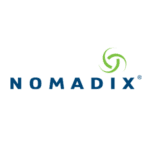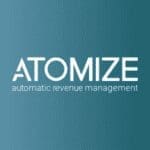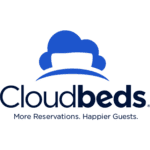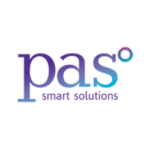 The Covid-19 crisis has brought the Travel & Tourism sector to a gruelling halt. The resulting global lockdown has pushed hotels to deal with unprecedented changes in demand and capacity and forced many properties to remain temporarily closed for business; a first in our lifetime.
The Covid-19 crisis has brought the Travel & Tourism sector to a gruelling halt. The resulting global lockdown has pushed hotels to deal with unprecedented changes in demand and capacity and forced many properties to remain temporarily closed for business; a first in our lifetime.
The recovery is unlikely to resemble anything we’ve seen previously and hotels that can adopt flexible and innovative revenue management tactics will emerge on top. Travel demand will continue to be low and extremely volatile for the coming months and booking patterns will be drastically different from pre-Covid-19 times. As such, hotels will be in the novel position of starting to build demand from scratch once they reopen.
Here are some key points to consider as you put together a recovery plan:
1. Don’t operate from a place of “distress”
Fear is normal at a time of crisis, but it cannot be the guiding factor in your decision making. In good times, pricing errors can be pardoned but, in a downturn, an ill-advised pricing strategy can eat up profitability and abolish a brand. A distinctive knee-jerk reaction is offering broad-based discounting without any consideration of the long-term harm this can cause.
Keep in mind that discounting is not a strategy: it can take months to recover from deep discounts as you compromise the positioning and pricing authority of the hotel indefinitely. Having said that, limited discounting can play a significant part in your recovery strategy if deployed intelligently and with care.
2. Adjust price and product architecture
Maintain your public or retail pricing, but focus on creating bundled rate offerings that demonstrate a strong value proposition for customers. Bundled pricing strategies work well in times of recession as they allow you to disguise the room rate. Therefore, adopting a promotional strategy built on bundling over a simple pricing approach will be crucial in attracting early demand. As such, sophistication in product and package design is vital to open new markets and new sources of customers (i.e. targeting locals, bleisure, couples, religious packages, architectural/history packages). Remember that every hotel within your competitive set will be fighting for business and thus it’s important to devise packages that are unique to your hotel and difficult for your competitors to duplicate.
Domestic demand will return first and marketing to domestic travellers will, therefore, be an important first step for any hotel. As people will still be hesitant to fly, marketing to the local feeder market via packages like “Staycations” or “Locals Book Now, Pay Later” will help tackle initial occupancy issues. Ensure that such packages are lucrative for the consumer with inclusions such as hotel credits, 24 hrs check-in /check-out time, tickets for local activities/excursions, etc. Since overall demand will continue to be low for some time, it will be important to maximise revenue from every booking rather than purely adopting an occupancy-led strategy. The focus should be on upselling experiences for the demand that has already been captured. Upselling F&B, spa and other revenue sources will be essential along with upselling higher room categories.
3. Highlight safety measures
Hotels have already reworked health and safety procedures as many opened their doors either as quarantine facilities or accommodation facilities for Corona warriors like medical professionals that are leading the fight against this pandemic. It will be important to extend and highlight these protocols to become the ‘new normal’ once hotels reopen for business as concerns around health and safety will be front and centre for any guest. Additionally, hotels will have to question how they can minimise high contact areas for customers; social distancing during the breakfast rush, no-contact check-in procedures and information on room sanitisation records are some that come to mind.
4. New reference points for forecasting
Demand patterns, booking traction, and pace trends have all been reset and will now have new reference points. Revenue Management software has not been built to deal with this extent of adversity and may provide recommendations that are far from reality. Therefore, demand forecasting will have to be done from the ground up with a short-term focus. Previously deployed methods of a straight line, moving average or linear regression forecasting will be redundant until there is enough data available. As such, a trial and error approach will be in practice at least for the first few weeks and months till new reference points are established.
5. Improve decision making efficiency
Now more than ever, Revenue Management will be at the centrefold of all recovery discussions. Multiple decisions will have to be taken and the quality of those decisions will determine how well you survive this crisis. A real-time assessment of data and latest trends must flow through to decision-makers in the organization seamlessly and Revenue Managers should, therefore, design processes and reports that capture early signs of demand and facilitate quick and effective decision making.
In these post Covid-19 times, many hotels are looking for measures to reduce manpower and other fixed costs permanently. We believe such cuts will also be prevalent for revenue managers. As such, there has always been a modest degree of disconnect in the expectations of senior leadership and the deliverables of a revenue manager. The shortage of qualified revenue professionals, coupled with cost-saving measures and an imminent need of high precision RM execution, will lead to more hotels using outsourced / remote revenue management firms in the coming months. A dedicated team of senior RM resources may be a good option to improve the financial results for your portfolio of assets.































